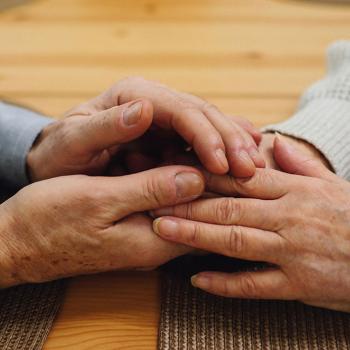Have I got that right? You're hoping for broad partnerships in the field?
Peter: I sure hope so. We've got a lot in common in this work. Certainly, I don't think we have to water down our religious faith to find creative partnerships in development. And, we do have to recognize that there are real religious divides. There are divides between Christians and secularists, between Christians and other faiths -- and between Christians and Christians as well.
But, hopefully, we can see that we're trying to build a movement here -- a new approach to working with people through microfinance. I've already seen a different attitude of partnership in this work and less organizational flag waving. I hope we can work together with others.
David: Explain more about this, because I know many of our readers will be familiar with the old-school idea in some ministries that people have to become Christian to get any aid -- or they'll get more assistance if they first convert. That's not how you work, though.
Peter: We're clear that our own staff members are followers of Christ. We use the Bible as the basis for our training materials. We give people an opportunity to see and to hear about the love of Christ.
But we're also clear that we're not using our faith as a dividing line in the communities where we work with entrepreneurs. We're not providing better loan terms or larger loan sizes based on your faith.
David: We also should stress here that you're not calling for an end to traditional relief efforts -- rushing food and supplies to meet emergencies. That needs to continue, of course. Also, you make it clear that not every poor person wants to open a business -- or is in a position to become an entrepreneur.
Peter: Absolutely. We talk about the difference between relief and development and both are needed. After natural disasters or war, starting to talk about loans -- when people don't have food to make it through another day -- that's not going to help anyone! And there are other long-term needs, like health care, education, and also theological education for the next generation of church leaders.
But microfinance is one very important piece of development in the world today and too few churches are involved in this.
David: Right. The Poor Will Be Glad really is a nuts-n-bolts guidebook explaining this concept that's new to lots of people. This is not just one more book about world poverty. This is different.
Peter: Yes, this book is not trying to describe the problem of global poverty. There are many other books that do that very well. This book describes in detail one particular solution. This is not the only solution we need in the world, but it is a very, very important piece.
David: You have gotten some "push back" on this idea, though. You talk about the skepticism. It seems to be almost a natural part of this transformation in seeing poor people as equal partners, not merely as recipients of aid.
Muhammad Yunus himself withstood a tidal wave of skepticism -- and even some downright hostility to his ideas. What kind of objections are you hearing in churches?
Peter: It is amazing that a lot of the people in the church still don't get it. There's been a lot of progress, but just the other day I had a conversation with an individual who expressed this prevalent attitude about charity that still says: If you're truly a follower of Christ, then you're going to give everything away.
The objection is: How can we give a loan to the poor? Doesn't the Bible talk about giving freely? There's an unhealthy distrust of business in general in the church. We hear lots of reasons that churches don't want to get on board.
David: Well, you and Rob Bell and I obviously agree here that the answer is -- showing people what a difference it makes, right?
Peter: Oh, yes. The most powerful way to get the idea across to people is to go and sit down with entrepreneurs who have benefited from microfinance. Then we just ask them to talk about their experience. That wipes away a lot of this skepticism and criticism we hear -- when we hear from real people who are living the benefits.
That's why HOPE International organizes short trips to go meet people who've benefited from this. More people need to see for themselves the importance of this idea.




